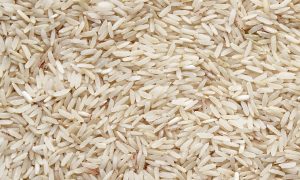PAU advises rice growers to monitor dwarfing disease

Punjab Agricultural University (PAU) urges rice farmers to remain vigilant against Southern Rice Black-Streaked Dwarf Virus (SRBSDV) this season, emphasizing early detection and management. The virus, transmitted by white backed plant hoppers, poses risks to rice crops in various districts. PAU advises farmers to monitor fields weekly for symptoms, use recommended insecticides judiciously, and report any suspected infections to local agricultural authorities. PAU also promotes short-duration rice varieties in water-deficit districts to optimize resource use.
The Punjab Agricultural University (PAU) has advised rice farmers across the state to remain vigilant against the rice dwarfing disease in the year’s rice growing season. The university had previously identified Southern Rice Black-Streaked Dwarf Virus (SRBSDV) as a causal agent behind the disease, which significantly damaged rice crops across several districts, including Fatehgarh Sahib, Patiala, Hoshiarpur, Ludhiana, Pathankot, SAS Nagar and Gurdaspur during the kharif season of 2022.
Director of research AS Dhatt assured farmers that PAU was fully equipped to detect SRBSDV infection. The university scientists are also monitoring weeds and other known crops that have been identified as alternate hosts of SRBSDV, he added. Further, he advised the farmers to be vigilant for the disease’s symptoms, inspect fields weekly by tilting and tapping plants to check for white backed plant hopper (WBPH) presence and use insecticides recommended by PAU only when necessary.
Farmers should be on the lookout for symptoms indicative of infection, such as narrow erect leaves, reduced root and shoot growth, and significant height reduction, said PS Sandhu, head of department of plant pathology. Farmers can inform the nearest Krishi Vigyan Kendra (KVK) or PAU for any suspected infected plants, he urged. However, no incidence of SRBSDV has been detected in the surveyed rice nurseries in Punjab so far this season, Sandhu said.
Principal entomologist KS Suri informed that the virus primarily spreads through WBPH, Sogatella furcifera, an insect-pest that is endemic to rice-wheat ecosystem of Punjab. Farmers are advised to inspect their fields on a weekly basis, if WBPH nymphs or adults are present, they will float on water, he observed. Upon detecting WBPH, farmers should use one of the insecticides recommended by PAU- Pexalon 10 SC (triflunezopyrim) @ 94ml/acre or Osheen/Dominant/Token 20 SG (dinotefuran) or Ulala 50 WG (flonicamid) @ 60 g/acre or Imagine 10 SC (fluprimin) @ 300 ml/acre or Orchestra 10 SC @ 400 ml/acre in 100 litres of water, ensuring that the spray is directed towards the base of the plants for optimal effectiveness, he added.
However, Suri strongly advised against non-judicious use of pesticides to prevent resistance buildup and environmental damage. By following these guidelines, farmers can manage and monitor SRBSDV effectively, ensuring healthier crops and sustainable farming practices, he said.
PAU promotes short-duration rice varieties in water-deficit districts
Ludhiana Keeping in view the availability of limited resources, especially irrigation water and fertilisers, more thrust was being laid on the promotion of recommended short-duration rice varieties in Moga, Ludhiana, Mansa, Sangrur, Sri Muktsar Sahib and Barnala districts. This was divulged during the monthly review meeting of the research and extension council of the varsity, held under the chairmanship of PAU vice-chancellor Satbir Singh Gosal on Wednesday.
Expressing satisfaction over the maximum sale of paddy seed by the Krishi Vigyan Kendra (KVK), Samrala, followed by KVK, Hoshiarpur, Gosal called it a positive sign and hailed the ongoing efforts of the extension scientists in this direction. Promotion of short duration rice varieties in water-deficit districts was need of the hour, he observed, while lauding the adoption of water saving “PR” rice varieties across the state. Further, he stressed upon conducting regular surveillance and issuing timely advisories for proper management of “fall armyworm” in maize, limiting the cultivation of spring maize and summer maize, popularising the cultivation of spring groundnut instead of spring maize, demonstrating biofertilisers for soil health maintenance and advocating French bean cultivation in view of its good results in Amritsar district. He added that every KVK should plant traditional trees in their campus and make it clean and green and also motivate the farmers to plant trees.Director of extension education MS Bhullar informed that several issues relating to “whitefly” management in summer moong and “fruit borer” management in tomato, soil sampling from surface seeded wheat field, sale of nutri-products to dairy farmers and performance of weedicides were discussed in the meeting. Besides, deliberations focused on sowing methods for summer moong, direct sowing of cucumber in September only under poly net house, cultivation of gobhi sarson under surface seeding technology and cultivation of kulth (horsegram) and mothbean, he added.














